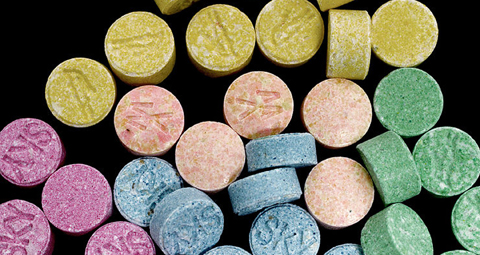BY Ryan McDougall | August 16 2019 | ![]() 0 COMMENTS
0 COMMENTS ![]() print
print

Young people are becoming ‘anaesthetised’ to drug risks, priests say
Publication Date: 2019-08-16
Priests highlight dangers following teenager's ecstasy drug death
Young people have become ’anaesthetised’ to the dangers of drugs, a priest has said after celebrating the funeral Mass of a teenager who died after taking ecstasy.
Fr Bernard Mournian, assistant priest of St Columbkille’s Church in Rutherglen, recently celebrated the funeral Mass of Brandon Rice, 17, who died after reportedly taking the drug at a party in the early hours of Wednesday July 17.
At his funeral, Fr Mournian pled with Brandon’s friends to make the ‘right choices’ and ‘appreciate the greater sanctity of life.’
Brandon is one of two young men from the area to have died in recent weeks.
Charlie Haughey, the son of SNP MSP Clare Haughey, passed away on Saturday while holidaying in Amsterdam. Dutch police said they were investigating a possible link to drugs.
‘Anaesthetised’
Fr Mournian said that young people ‘have become anaesthetised’ to drug use.
“Even the young people you would expect have been well-brought up and have other pursuits and interests are dabbling in drugs,” he said.
“Obviously a lot of it is peer pressure, and drugs seem to go hand-in-hand with enjoying themselves.”
Fr Mournian said he was unaware of the extent of the problem before arriving in St Columbkille’s, but he has now realised ‘what an epidemic there is.’
Ruining lives
He said that drug use covers a scale from ‘young, healthy people who are full of life and energy,’ to ‘people who are now in their 40s and 50s who have been taking drugs for a long time.’
“There’s been a number of times people have came to arrange a requiem for someone who had been a drug user,” he added.
“It ruins families and ruins lives, especially here in Rutherglen where it seems to be very prevalent.”
“It just becomes a way of life—a conveyer belt of addiction and everything else that encompasses it,” he said.
Crisis
Statistics released by the National Records of Scotland last month showed there were 1,187 drug deaths in 2018, a 27 per cent increase compared with 2017.
On a parish level, Fr Mournian believes kindness is key to helping those tempted by drugs and those currently using them.
He said: “I think first of all we should see them with compassion and to try, although it’s difficult at times, to see the face of Jesus in them… to try and direct them and refer them to the people that can offer them a lot of practical help, whether that be through foodbank services that we offer in the church hall, or professionals such as Alcoholics Anonymous or Narcotics Anonymous.”
He added that the Church can also steer people in the right direction, and that it is there as a ‘first port of call’ when helping those struggling with drugs or addiction.
Inverness
The problem is not limited to the west of Scotland. Fr James Bell, parish priest of St Mary’s Church in Inverness, said the city and surrounding area has a drug problem, as well as a ‘longstanding alcohol problem.’ He added that the deaths of young men through drugs was ‘tragic.’
“This is particularly affecting younger people, though it does affect middle-aged people too, as well as older people with long-term addictions,” Fr Bell said.
“I know that these recreational drugs like ecstasy are still in vogue with young party goers, which can have catastrophic effects.”
Parish support
Fr Bell’s parish hosts a weekly self-help group for those who are struggling with a range of issues, including drug and alcohol abuse.
They also celebrate Mass once a week for the Cenacolo Community, a movement set up by Italian nuns for Catholics who have suffered from addiction.
Fr Bell added: “We are particularly keen to support the work of Cenacolo, and have a Cenacolo Mass on Monday evenings,” he said.
“It’s marvellous to see the improvement it can make in someone who may have struggled with addictions.”
Church reaction
A spokesperson for the Church in Scotland said: “Drug abuse not only impacts individual health and wellbeing, but has an enormous and corrosive effect on families, communities and wider society.
“Tragically, the current harm reduction strategy in Scotland is not working and drug-related deaths have more than doubled between 2007 and 2017.
“Initiatives should be targeted towards prevention programmes, long-term recovery and rehabilitation.”
The Church previously rejected arguments for the legalising of drugs saying that ‘society must come together to create the conditions for people to live free from drugs, by tackling the deeply entrenched and inter-related scourges of poverty, inequality, homelessness and addiction.’










